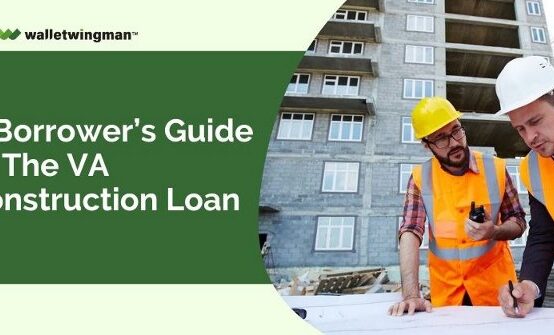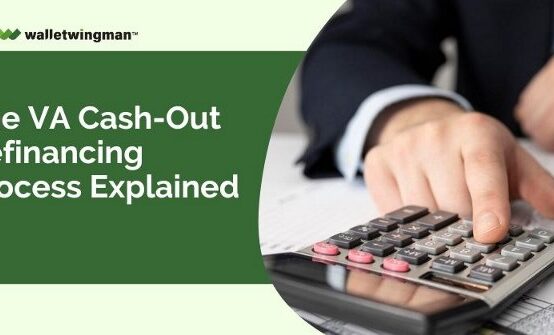At some point during their careers, many military members wonder if it makes sense to buy a home while they are still serving. After all, military life is known for its frequent moves and relocation transfers.
This begs the question: Does it make sense to buy a home while in the military?
If you’re in a stable real estate market and have sufficient income to manage a monthly mortgage payment, you could successfully buy a home even while in the military. Thousands of people do it every year. You just have to go into it with the correct information.
Buying a House While Still Serving in the Military
This article pertains to purchasing a home in the United States while still serving in the military. Buying property in a foreign country during an overseas tour is entirely different. That’s why most overseas military members lean toward rental units or base housing.
With that clarification out of the way, let’s explore some of the most important considerations when buying a home in the military.
The Benefits of Using a VA Loan

The VA loan program gives military home buyers a significant advantage over most civilians. It allows you to buy a home with no down payment whatsoever. The benefits of VA home loan extends to both active-duty service members and veterans who have been honorably discharged.
When exploring your mortgage options, determine your VA home loan eligibility. If you can use this program to buy a house while serving in the military, it will remove one of the significant obstacles to homeownership—the down payment.
Let’s plug in some numbers to illustrate just how powerful this benefit is.
When this article was published, in early 2024, the median home price in the United States was around $343,000. And according to a survey conducted by Realtor.com, the average down payment among first-time home buyers in the U.S. was 6%.
If we combine these numbers, we end up with a down payment of around $20,000. So that could be considered a “typical” down payment for a first-time buyer in the U.S.
Do you have that kind of cash in the bank? Could you afford to make an average down payment on a typical home price while serving in the military?
Maybe so. However, for a lot of younger military members, who also happen to be first-time buyers, this kind of down payment might be out of reach. It might take them years to save that kind of money.
This is where the VA home loan program comes into play. It allows military members and veterans to finance up to 100% of the purchase price, avoiding the need for a down payment.
Securing a VA home loan pre approval can provide significant advantages in the home-buying process. It demonstrates to sellers that you are a serious and qualified buyer, potentially giving you an edge in competitive markets.
Additionally, getting pre-approved helps you understand your budget and strengthens your negotiating position when making an offer on a home. It’s a valuable step towards achieving your homeownership goals with confidence.
Finally, after obtaining pre-approval, the home appraisal is a crucial step in the process. This protects both the buyer and the lender, ensuring the property is worth the investment.
VA Loan Home Appraisal Checklist for Buyers

A VA loan home appraisal is a critical step in the home buying process, making sure that the property meets the Department of Veterans Affairs’ minimum property requirements (MPRs). While not a home inspection, the VA appraisal focuses on assessing the property’s condition and value to protect both the buyer and the lender.
Here’s a VA loan home appraisal checklist:
- Structural Integrity: The appraiser will inspect the structural components of the property, including the foundation, walls, roof, and overall construction quality. Any signs of structural damage or issues may affect the property’s eligibility for VA financing.
- Safety Hazards: The property must be free from safety hazards that could pose risks to buyers. This includes ensuring that staircases, railings, electrical systems, heating, ventilation, air conditioning (HVAC) systems, etc., are in working condition and compliant with building codes.
- Habitability: The appraiser will assess whether the property is suitable for occupancy. This includes checking for functioning utilities, adequate heating and cooling systems, proper ventilation, and overall livability standards.
- Property Size and Lot: The size of the property and its lot will be evaluated to ensure they meet VA guidelines. Additionally, the appraiser will assess factors such as drainage, grading, and any environmental concerns that could affect the property’s value or safety.
- Property Valuation: The appraiser will determine the property’s fair market value based on comparable sales in the area. This valuation ensures that the property’s price aligns with its market value and that the loan amount is appropriate.
- Environmental Factors: The property will be evaluated for any environmental hazards or concerns, such as lead-based paint, radon, mold, or other contaminants. These factors can impact the property’s safety and value.
- Accessibility: The property should be accessible to individuals with disabilities in compliance with the Americans with Disabilities Act (ADA) standards. This includes features such as ramps, handrails, and accessible entrances.
- Overall Condition: The appraiser will assess the overall condition of the property, both inside and out, taking note of any needed repairs or maintenance issues. Cosmetic issues may not necessarily affect VA loan eligibility, but significant structural or safety concerns may require remediation.
Selling the Home Before Your Next PCS Move

In addition to exploring your financing options, it’s essential to assess the resale value of the home you’re considering purchasing, especially when contemplating a VA loan for second home. The ideal scenario is to buy a home in a stable real estate market where home prices are (A) gradually rising and (B) expected to continue climbing.
Many people who buy homes while serving in the military must move again through a permanent change of station (PCS) in a few years. In that case, you want to make a smart investment to sell the home before your next relocation move.
No one can predict future real estate trends with complete accuracy. However, you can take specific proactive steps to determine if a particular home has good resale potential. This is a critical step when buying a home in the military.
Here are some tips for assessing the resale value of a home:
- Research local real estate market trends, including historical data on property values, sales trends, and forecasts for future growth or decline.
- Assess the stability of the local job market and employment opportunities. A strong job market typically correlates with a healthy real estate market.
- Consider the quality of the school districts in the area. Good schools can attract more buyers and help maintain property values.
- Investigate crime rates and overall safety in the neighborhood. Lower crime rates often translate to higher property values.
- Analyze recent sales data of similar properties in the neighborhood to understand pricing trends and comparable values.
- Examine the condition of the property and any potential need for repairs or upgrades. Well-maintained homes with desirable features tend to have better resale value.
- Seek guidance from a local real estate agent with knowledge of the market. Agents can provide valuable insights and help identify properties with strong resale potential.
Income Stability From a Guaranteed Paycheck
Military members are often well-qualified for mortgage financing because they have a guaranteed paycheck and good job security. This, in turn, could help you qualify for a mortgage loan to buy a home while serving in the military, especially if it’s a VA loan.
While applying for a mortgage loan, the lender reviews all aspects of your financial situation. They look at your current income, recurring debts, cash on hand, other assets, etc., to make sure you have the financial capacity to repay your loan.
Serving in the military can help you qualify for a mortgage loan. As mentioned above, military service offers a guaranteed income and more robust job security than most civilian jobs.
And the data backs this up. Statistically, military members are strong borrowers with a relatively low risk of foreclosure. So, you might have an easier time obtaining the funds needed for your home purchase while still serving in the military.
Considering these factors, military members exploring home financing options should delve into VA home loan requirements. Understanding these criteria streamlines the mortgage application process and maximizes the benefits available to eligible service members and veterans.
Additional Considerations for Military Home Buyers

In closing, here are some helpful tips for anyone buying a home while in the military:
- Location: Consider proximity to the base, commute time, and access to amenities.
- Housing Allowance: Find out if your housing allowance or BAH covers housing costs in the area or will at least make them more affordable.
- Deployments: Consider how deployments might affect mortgage payments and property management.
- VA Loan Eligibility: Explore options for VA loans and their benefits for military personnel.
- Home Maintenance: Determine if the property might require extensive maintenance, especially during deployments.
- Future Plans: Consider career plans and potential relocation before purchasing a home.
- Legal Assistance: Utilize military-provided legal assistance for reviewing contracts and understanding rights.
- Support Network: Build a support network for assistance with home-related matters during deployments.
Before you, many have successfully navigated home purchases while serving. Armed with thorough research and planning, you can achieve your homeownership goals. Additionally, be mindful of VA home loan limits to optimize your purchasing power and benefits.


 A Borrower’s Guide to the VA Construction Loan
A Borrower’s Guide to the VA Construction Loan  How to Buy a Condo Unit with a VA Mortgage Loan
How to Buy a Condo Unit with a VA Mortgage Loan  How Credit Scores Affect Mortgage Rates on a VA Loan
How Credit Scores Affect Mortgage Rates on a VA Loan  How Much Can I Borrow When Using a VA Loan to Buy a House?
How Much Can I Borrow When Using a VA Loan to Buy a House?  The VA Cash-Out Refinancing Process Explained
The VA Cash-Out Refinancing Process Explained  The Pros and Cons of 15-Year vs 30-year VA loans
The Pros and Cons of 15-Year vs 30-year VA loans 